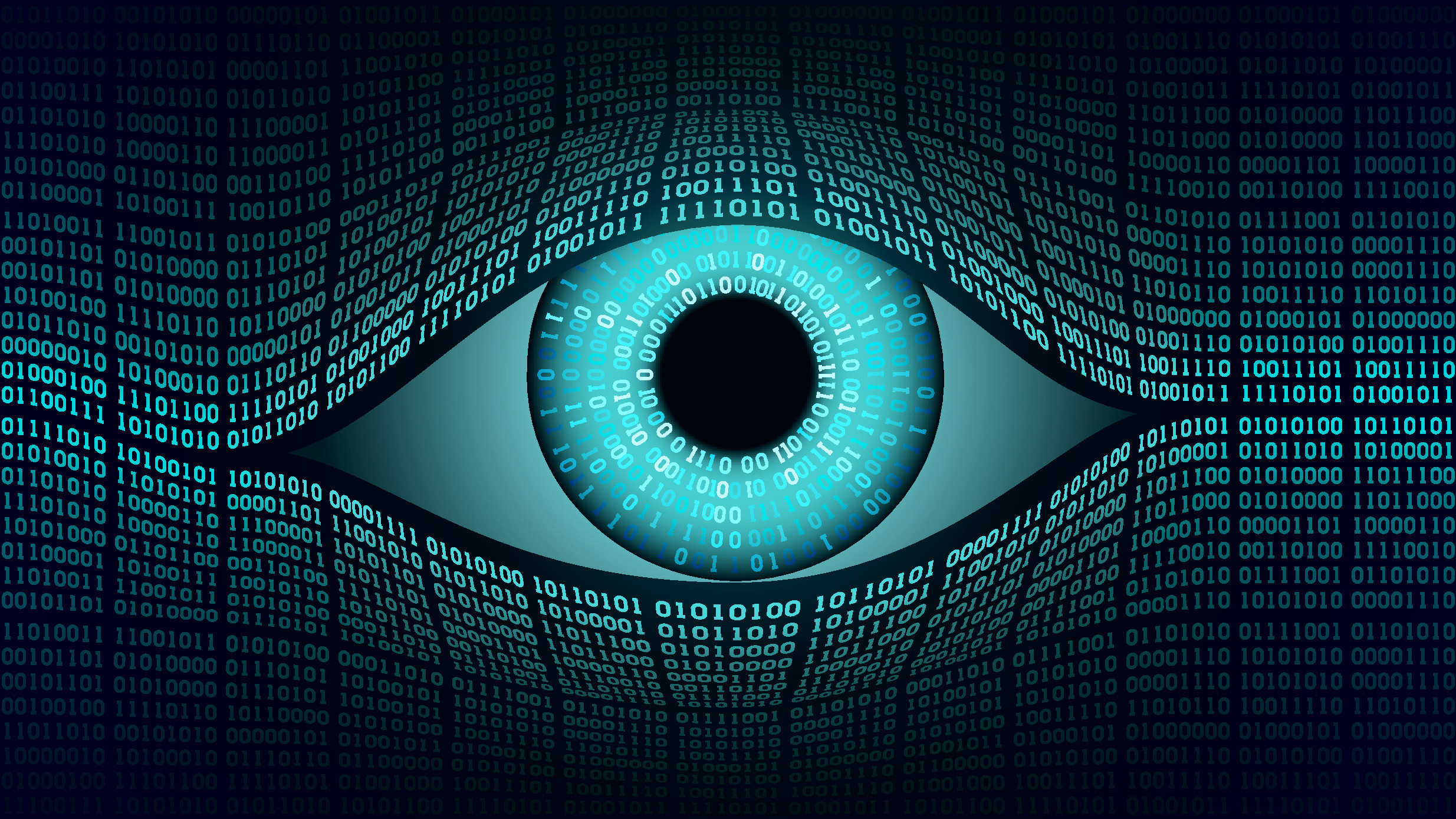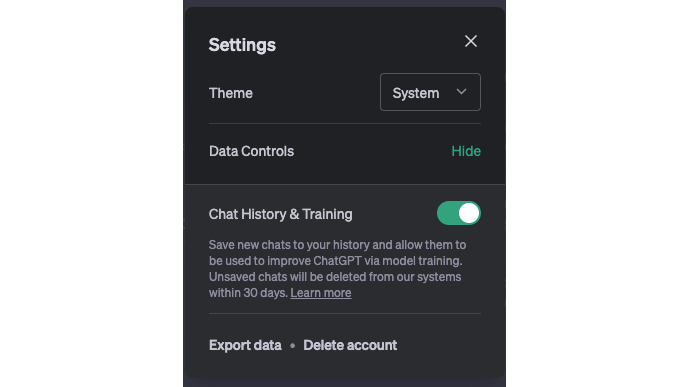ChatGPT now lets you keep your chats private from prying AIs – and it’s about time
Finally, some privacy from the bots!

Sign up for breaking news, reviews, opinion, top tech deals, and more.
You are now subscribed
Your newsletter sign-up was successful
ChatGPT has introduced a new privacy feature that allows users to protect their information by turning off their chat history and disabling the bot's ability to use their data to train and improve other AI models.
If you’d like to make the change so your chat history won’t be stored, log into your ChatGPT log onto your account and click on the three dots next to your email - you’ll find this on the bottom-left corner of the screen - and click Settings. Once another window has popped up you can head over to the Chat History and Training settings and reverse the toggle labeled ‘enable chat history’.

In the press release OpenAI went into a little more detail regarding the new privacy setting, saying that “When chat history is disabled, we will retain new conversations for 30 days and review them only when needed to monitor for abuse, before permanently deleting.
It’s easy to assume the new privacy policy comes off the back of ChatGPT’s recent ban in Italy for possible privacy violations.OpenAI was told service can only resume once privacy tools were improved and users could opt out of their data being processed.
However, the company denies the ban was a catalyst for the new feature, with the chief technology officer telling Reuters that the decision was not born from the ban but rather a labor of months-long effort to give users more control of their data.
Not for you to know
It’s about time users can opt out of their data being stored, and it seems like the new feature is a little too late. People have been using ChatGPT for a plethora of reasons, feeding the bot their data consistently without much say in what the bot (and OpenAI itself) then does with the data.
Personally, I’ve been incredibly hesitant to use the bot to help improve my writing, as I was worried about what the company might do with my work. While a single person's chunks of creative writing may not sound like a lot, if you consider how much copy the bot produces in a day, I don’t want my hard work being churned out in small fractures across the internet without my permission.
ChatGPT is fed essays and creative work in order to emulate, some people use the bot as a portable therapist, and other people enjoy having a casual chat. Not to mention the floods of people using the bot as a collaborator for many different projects.
The new privacy changes represent an important milestone, and the ability to use ChatGPT freely for creative projects without fear that your own work will be assimilated into the AI’s learning processes and used by other people to churn out easy results. I hope other chatbots will follow suit - although this does naturally present potential issues further down the line, since ChatGPT and other deep-learning programs need human input in order to generate their own work.
Sign up for breaking news, reviews, opinion, top tech deals, and more.

Muskaan is TechRadar’s UK-based Computing writer. She has always been a passionate writer and has had her creative work published in several literary journals and magazines. Her debut into the writing world was a poem published in The Times of Zambia, on the subject of sunflowers and the insignificance of human existence in comparison.
Growing up in Zambia, Muskaan was fascinated with technology, especially computers, and she's joined TechRadar to write about the latest GPUs, laptops and recently anything AI related. If you've got questions, moral concerns or just an interest in anything ChatGPT or general AI, you're in the right place.
Muskaan also somehow managed to install a game on her work MacBook's Touch Bar, without the IT department finding out (yet).